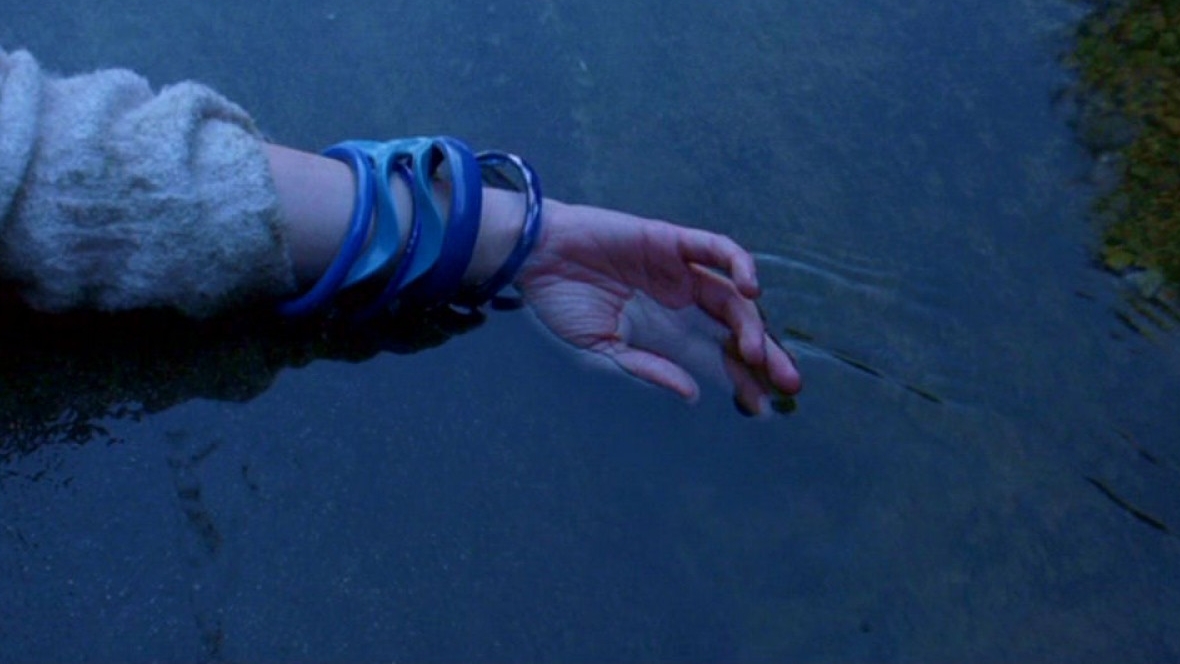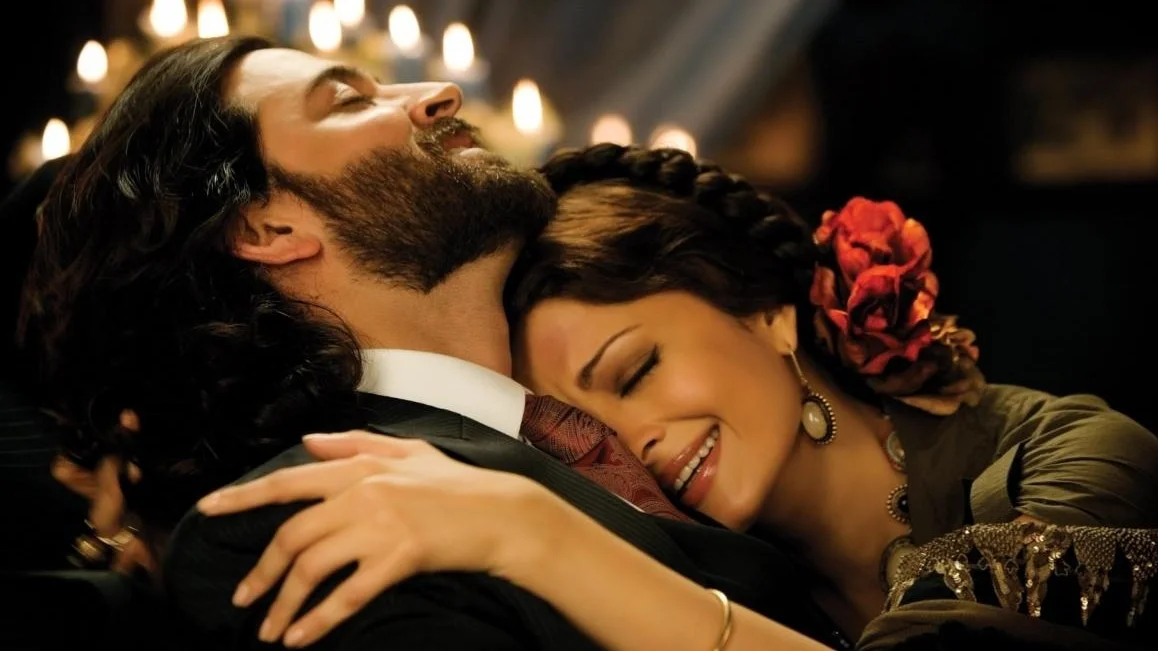Noirvember Files: Brick (2005)
Noir isn’t a genre that I know much about. I’ve seen some of the classics, but it isn’t something that I consider myself well-versed in. High school movies, on the other, I know quite a lot about. Brick is a movie that could have very easily walked the line between high school and noir. It could’ve been a dark murder-mystery, while also being a coming-of-age story that ends at a school dance or a big game. But Rian Johnson refuses to play by high school rules. Brick doesn’t have a single scene in a classroom. Its characters are students, and several scenes take place in the halls of school, but it's really easy to forget all of that. Yes, Brick is a high-school noir film, but it’s deeply noir and only nominally high-school.
The tone is established from the first shot—the body of a dead girl lying in a stream, and Joseph Gordon-Levitt’s Brendan Frye crouching nearby. The film tells the story of this body, following Brendan as he first tries to find his ex-girlfriend, leading him into the drug-based underworld of his high school in order to discover who was behind her death. It’s got all of the tropes of noir, but doesn’t ever seem like it’s falling into cliché. There’s a damsel in distress, a femme fatale, and a detective that’s been burned one too many times. But never does the film wink at the audience. It’s dead serious and dark black.

But just because it’s dark and serious doesn’t mean that it isn’t fun. Johnson writes Brendan with a quick wit that makes every line of dialogue fun to hear. “I've got all five senses and I slept last night, that puts me six up on the lot of you,” he yells at a group of stoners who are attempting to threaten him. This fearlessness is a core quality of Brendan’s, whether he’s beating up a dealer to stir the pot, or taking a beating to prove a point. He also always knows what’s going on, whether or not Johnson has decided to keep the audience in the loop, and it only ever comes together at the end. Until then, all you can do is follow along and enjoy the ride.
Johnson, along with his production team, gives the film a great noir aesthetic without going all out. Take the costuming, for example. When you picture a noir detective, you expect them to be wearing a trench coat and a wide brim fedora. Brendan wears a baggy army jacket, with mop top hair that almost covers his eyes. It’s close enough to what a high-schooler would wear that it doesn’t break the fourth wall, but also recognizable enough that the moment you see him you know what his role will be. Every character is dressed like this, from the brainy sidekick wearing glasses and dressed in a stylish plaid, to the drama-club string puller always in her stage makeup. What they're wearing always makes sense for high-schoolers, but it makes even more sense for noir character archetypes.
Brick is an incredibly impressive debut for Rian Johnson, who would go on to make The Brothers Bloom and Looper, as well as some of the standout episodes of Breaking Bad. His understanding of tone, his cohesive style, and his intricate plotting are on display from the very start of his career, and grows with each film he makes. After the announcement of a new Star Wars trilogy with him at the helm, part of me is sad that his most productive years ahead will be spent in the same universe. I imagine he has dozens of different ideas, with new settings and characters. I’m mostly excited for it, though. If he can make high school into a gritty noir underworld, what can he do with my favorite galaxy far, far away?
The key to Dan Kwan and Daniel Scheinert’s two magnum opuses.
"Nothing comforts anxiety like a little nostalgia"
How the series ties everything from Bound to The Matrix Resurrections together.
The movies were back (mostly) in 2021 and Callie counts down her favorites, from Annette to Drive My Car!
How the novel by Tarantino lovingly opens up the world presented in the film.
Looking at some films that played at this year’s eclectic fest including Scenes from an Empty Church, Alien On Stage, and We’re All Going to the World’s Fair.
On how the new Netflix special is an effective look at an artist living through the pandemic.
On Martin Scorsese’s female characters and Vera Farmiga’s performance in his 2006 film.
A long, critical look at the greatness of the Saw franchise’s endings.
A personal essay on going back to the movies, and more.
On what the audience expects and what filmmakers deliver in two very distinct, yet similar, films.
The pseudo-major release of Tenet poses a myriad of complex questions about movie going in difficult times.
In her debut for our site, Sarah Fisher explores Jimmy Stewart’s career as he grew from “charming everyman” to Hitchcock’s vision of the “world-weary cynic”.
For his debut on the site, Loafpile dives deep into E.T. the Extra-Terrestrial and the current state of nostalgia-induced sequels.
Aaron looks at the powerful themes in The Last of Us - Part II in this deeply personal piece.
A first-hand experience of CFF’s all-virtual film fest.
The basketball drama from this past year sure did leave its mark.
Two decades later, Mary Harron’s adaptation remains a cutting dig at male masculinity.
A personal deep dive into why the character know as Kylo Ren is an important one.
Dave highlights the best of 2019 that weren’t in the Awards conversation.
From festival favorites to genuine surprises, Rachael highlights her favorite films of 2019.
Callie’s favorite films of the year illustrate just how bold and diverse a year for film 2019 was.
Ten spots weren’t enough for a year featuring films by Martin Scorsese, the Safdies, and Bong Joon-ho.

































